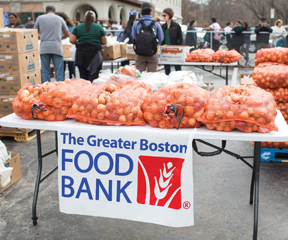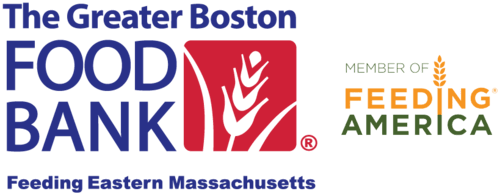Meeting People Where They Are, With Less Stigma
Five years ago, GBFB made a strategic decision to expand Mobile Market partnerships with community health centers, recognizing its role in providing nutrition interventions. Today we run eight Mobile Markets at Community Health Centers across Eastern Massachusetts. Not only did the decision address GBFB’s goal to ‘meet people where they are’ and connect healthy food with food insecure patients, but it also offered a powerful opportunity to glean solid data for improving impact.

Led by GBFB and researchers from CHA, we launched the HC PRODUCE Study in February 2019 to better understand barriers and facilitators to Mobile Market attendance at the Cambridge Health Alliance (CHA) in Revere. Short for ‘Health Center PROgram to support fooD secUrity through nutrition Coaching and produce markEts,’ researchers initially surveyed 853 patients and followed up with 715 of them a year later. The study provided a sharper lens on the Market, whose participants are more likely to be: younger (30–49); Asian or another race; have a language of medical care other than English; make less than $1000/month; and live in Revere, although not exclusively.
The big takeaway, however, was that stigma did not emerge as a significant market barrier, as it often does at other food access sites. Accessing the Market through a healthcare provider goes a long way to maintaining dignity, as it turns out. Participants also spoke at length about their desire for fresh produce—the essence of the Market—for their children. Typically, such produce has proved prohibitively expensive for many clients.
“It [the market] showed me that my health insurance plan or my health clinic cares about its customers and wants to improve their health by offering vegetables and fruit that maybe some people have never tried before,” said one regular Market participant.
“There’s a unique opportunity for the healthcare system to provide food in a less stigmatizing way—in a dignified way, and this research validates that.”
“There’s a unique opportunity for the healthcare system to provide food in a less stigmatizing way—in a dignified way, and this research validates that.” adds Dr. Lauren Fiechtner, senior health and research advisor for GBFB and pediatrician at Mass General for Children.
